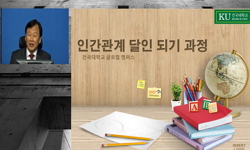This study explores the educational potential of popular autobiographies and autobiographical writing in promoting learners’ identity formation and self-reflection. Focusing on Son Heung-min’s autobiography as well as prominent examples like Nelso...
http://chineseinput.net/에서 pinyin(병음)방식으로 중국어를 변환할 수 있습니다.
변환된 중국어를 복사하여 사용하시면 됩니다.
- 中文 을 입력하시려면 zhongwen을 입력하시고 space를누르시면됩니다.
- 北京 을 입력하시려면 beijing을 입력하시고 space를 누르시면 됩니다.

대중 자서전을 활용한 자서전적 글쓰기 교육의 가능성 = The Educational Potential of Popular Autobiographies: Investigating Identity Formation and Self-Reflection through Autobiographical Writing
한글로보기https://www.riss.kr/link?id=A109493892
- 저자
- 발행기관
- 학술지명
- 권호사항
-
발행연도
2024
-
작성언어
-
- 주제어
-
KDC
800
-
등재정보
KCI등재
-
자료형태
학술저널
- 발행기관 URL
-
수록면
347-368(22쪽)
- 제공처
-
0
상세조회 -
0
다운로드
부가정보
다국어 초록 (Multilingual Abstract)
This study explores the educational potential of popular autobiographies and autobiographical writing in promoting learners’ identity formation and self-reflection. Focusing on Son Heung-min’s autobiography as well as prominent examples like Nelson Mandela and Malala Yousafzai, the research highlights how autobiographies serve as accessible and engaging tools to inspire personal growth and learning. The study incorporates theoretical frameworks from Lejeune’s autobiographical pact and Ricoeur’s narrative identity, emphasizing how autobiographical writing helps learners selectively reconstruct memories and shape self-perceptions. Findings indicate that autobiographical writing enhances self-reflection, fosters narrative identity, and enables learners to connect personal experiences with broader social and cultural contexts. The study offers practical implications for incorporating autobiographical writing into educational programs to support identity exploration and self-awareness.
동일학술지(권/호) 다른 논문
-
전조선소년지도자대회와 『어린이』 기념호 발행에 대한 연구 ― 색동회와 『어린이』의 미디어 의식을 중심으로 ―
- 현대문학이론학회
- 손증상 ( Son Jeung Sang )
- 2024
- KCI등재
-
‘자동차’라는 서사적 조건 ― 한국 근대 소설과 자동차 모빌리티의 상상력 ―
- 현대문학이론학회
- 공성수 ( Kong Soungsu )
- 2024
- KCI등재
-
테크놀로지 좀비와 유목적 유토피아의 전망 ― 김중혁의 『좀비들』에 대하여 ―
- 현대문학이론학회
- 김주리 ( Kim Jue-lee )
- 2024
- KCI등재
-
최은영 소설에 구현된 치유 서사의 양상 ― 「쇼코의 미소」와 「아치디에서」를 중심으로 ―
- 현대문학이론학회
- 박진 ( Park Jin )
- 2024
- KCI등재




 KISS
KISS





